
In the world of electric fencing, the solution is a straightforward one – use an electric poultry netting kit! But, what are the questions you need to ask to get the right kit for you and your hens?
Meriel Younger from www.electricfencing.co.uk has firsthand experience of setting up and using electric poultry netting for her hens. Here is her 8 step guide along with some comments and experiences.
Meriel says - Being a spur of the moment kind of person planning doesn’t come naturally to me. However, to ensure my hens were safe I was out with the measuring tape, pacing up and down to make sure I had planned their new pen to the nth degree! So, what did I need to think about to get the perfect pen for my lovely feathered friends and to ensure their safety? These are the steps that I went through:
1) What power was I going to use?
The power options are mains, battery or solar. I knew I was going to use mains power as it was not far from the pen. But when you plug your energizer into the mains you need to transfer the power then to the fence. So how much lead out the cable was I going to need? I needed a short length of 25m and crocodile clips to connect to the netting. Enough to get from the energizer to the start of the fence and from the energizer to the earth stake. Comment: Lead out cable is not required with battery or solar energizers as they sit right next to the fence. Some solar energizers have low outputs and netting requires a good strong energizer – so it may be worth getting a battery energizer and adding a solar panel instead of getting a solar energizer.
2) On/Off Switch?
This story is from the {{IssueName}} edition of {{MagazineName}}.
Start your 7-day Magzter GOLD free trial to access thousands of curated premium stories, and 9,000+ magazines and newspapers.
Already a subscriber ? Sign In
This story is from the {{IssueName}} edition of {{MagazineName}}.
Start your 7-day Magzter GOLD free trial to access thousands of curated premium stories, and 9,000+ magazines and newspapers.
Already a subscriber? Sign In
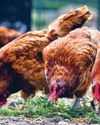
Growing food for Chickens
Mary Larham explores some crops to grow on your holding…
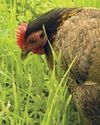
Poultry in the garden – the truth!
Jo-Jane Buxton shares her experiences

The British Waterfowl Association
Which came first, the goose or the egg?
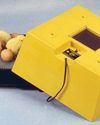
WHY FIT A FAN IN AN INCUBATOR?
Brinsea Products, the Incubation Specialists explain the difference between still air and forced draught
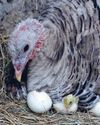
Incubating turkey eggs
Janice Houghton-Wallace looks at broody turkeys and artificial incubation

Chicken nesting box herbs
Diana Clauss owns The Blue Feather Farm, in St Cloud, Florida, home to chickens, ducks, goats, and Anatolian Shepherd dogs.
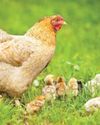
Incubate in January?
Jessica Wombwell says plan the breeding
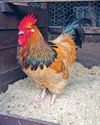
Andy's DIARY
Andy emphases the importance of keeping out damp and wet but allowing ventilation even in cold weather
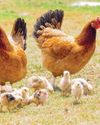
Feeding for Breeding
It may be winter, but as Joanna Palmer, nutritionist for Smallholder Range explains, now’s the time to get your flock in tiptop shape and plan ahead for a successful breeding season next spring.

A chick named Cuckoo raised by a duck!
Chris Hammacott and her husband live on a small croft in the Outer Hebrides, they keep a ‘no kill’ flock or rare and rescue sheep which they use to spin and weave rugs. They also share the 8 acres with hens, ducks, cats and 9 rescue pugs.